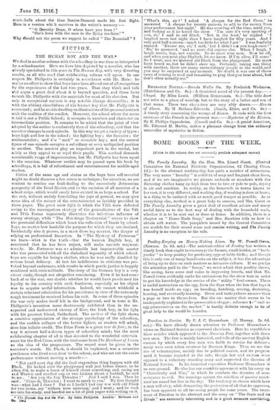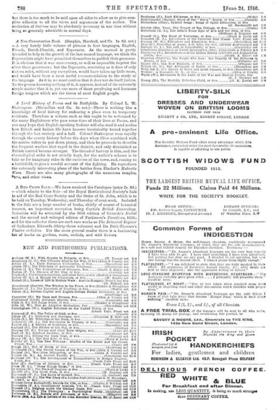Freedom in Service. By F. J. C. Hearnshaw. (J. Murray.
2s. 6d. net.)—We have already drawn attention to Professor Hearnshaw's views on National Service as expressed elsewhere. Here he republishes three articles which appeared in the Morning Post, together with three new ones. The first is mainly historical, and tells of the ancient English custom by which every free man was liable to service for defence ; many were even taken overseas by Norman Kings. Then we see the rise of voluntaryism, mainly due to political causes, and its progress until it became regarded as the rule, though law and custom were opposed to a voluntary standing army and supported the theories of National Service. In his historical exposition Professor Hearnshaw is on sure ground. He also has our coneplete agreement with his essay on "Christianity and War," in which he combats the doctrine of non- resistance to eviL His warnings against the rebellion of passive resist- anceare sound but late in the day. The tendency to choose which laws a man will obey, while demanding the protection of all that he approves, has been apparent to all far-seeing people for some years. The treat- ment of Freedom in the abstract and the essay on "The State and its Rivals" are extremely interesting and in a great measure convincing, but there is too much to be said upon all sides to allow us to give com- plete adhesion to all the views and arguments of the author. The exaltation of itatisme may be absolutely necessary in war time without being so generally admirable in normal days.



































 Previous page
Previous page